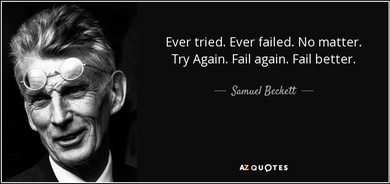
It has been a serious few months in this Living Metta laboratory of life taking metta off of the meditation cushion and out into the world. Perhaps it’s time for a break from 2020 with an injection of comic relief and some time travel . . .

The year is 1989 and I’m sitting in the school cafeteria next to one of my dearest friends. Sophie turns to me as we’re eating lunch to casually ask, “Do you even have parents?” I responded, “Well, I wasn’t hatched from an intergalactic egg if that’s what you’re getting at,” referring to my nickname at the time, Mork from Ork, an alien who aged backwards played by the late Robin Williams.
Sophie rolled her eyes and continued: “That’s not what I meant. It’s more like you don’t need parents.”

Brutal honesty at its best. What Sophie had no way of knowing was that I was an only child in a family rife with abuse of every kind, and that—for my own sanity—I had made the decision three years earlier that my parents weren’t my parents anymore. They were so damaged themselves that they had no idea what they were doing, let alone how to raise a child. That inner mental shift, rather than blaming or fighting them, sparked an unexpected compassion and saved my life more than once until I was old enough to walk away.
But I promised you some comic relief, dear readers, and so we’ll fast forward some two decades to when I was running creative writing workshops for writers of all ages. A university approached me to teach writing skills to their first-year students. This was something that serious publish-or-perish academics felt was a waste of their time, especially at 9 a.m. every Monday morning—truly the undergrad teaching graveyard shift!
At my first end-of-term teaching evaluation, my supervisor sat me down for another brutally honest conversation. She looked me straight in the eye and asked whether I was aware that I had the highest attendance record and lowest disciplinary rate in the history of the department? That every single final project the students had produced was breathtakingly original and of a publishable standard? That the entire cohort had jumped a classification? (UK grading is in tiers rather than grades or percentages.) And that there was already a waiting list for my class next semester?
She paused and narrowed her eyes. “Did you give them drugs?”
I burst out laughing before realising she wasn’t kidding. Part of me was stunned by the surprise accusation, and part of me was insulted on behalf of my talented students.
It was my turn to pause and narrow my eyes into what I hoped was a Paddington Bear hard stare:
I calmly explained that the “good” attendance and behavior was probably because I had treated them as the adults they were becoming. As for the excellent standard of the creative work itself, that was probably due to really listening as they took their first tentative steps into the world without external authority figures. Essentially, I’d just given them the room to grow.
My supervisor didn’t understand, no matter how many ways I tried to explain, but fellow meditators reading this article just might. Even better, you’ll hopefully draw some inspiration on how to have the same effect on those around you that I had on those students slowly waking up to the fact that no external authority on earth currently knows what they’re doing let alone what’s best for any of us.
At the start of term, I had taken one look at the departmental syllabus—to teach the basics of prose, poetry, journalism, and scriptwriting to help students express themselves better in writing—and contemplated death by a thousand paper cuts.
It was beyond boring, but it was. . . . How. It. Had. Always. Been. Taught.
Sound familiar?
Considering no one else in the department was prepared to teach the course, and probably wouldn’t check on progress until it was completed, I took a risk. I turned up early to the first workshop to rearrange the desks from rows into a circle and, as a dozen or so bored-looking undergrads slouched in late, looking at me suspiciously, I tore up the syllabus theatrically and was brutally honest of what a load of crap it was.
A few looked up.
I continued that, being an undergrad module, there were certain evaluation hoops we would eventually have to jump through. But how we got there was up to them. What did they fancy learning instead?
They stared at me like I truly had been hatched from an intergalactic egg, but said nothing.
“I plan to learn more from all of you than you will from me. What writers speak to you? What songwriters inspire you? What pisses you off about the world? I just need to be seen to be standing at the front of this classroom if staff walk past. Otherwise, what happens in this space this term is completely up to you.”
And for the next two-and-a-half hours they tentatively volunteered their loves and hates and curiosities while I kept asking interested questions and furiously took notes to write them a bespoke teaching syllabus.
It only occurred to me the following Monday, when the entire roster turned up at 9 a.m. sharp, that I was possibly the first adult to treat them like adults. More brutal honesty: I confessed that I was a bookworm, so they should not bother trying to imitate other writers (I’d know who) or guess what genres I preferred (as I’m a book omnivore) for better grades. The way to get a first from me was to take risks, even if they fell spectacularly flat on their faces in the process. From now on, nothing was taboo or off limits within safety of the workshop space.
“You can say and write whatever you want in this space. But so can everyone else.”
I made them each a photocopy of Samuel Beckett’s excellent advice for both life and writing to pin up over their study areas at home:

“Good ideas come from giving yourselves permission to explore a lot of bad ones first.”
Their initial exercises and assignments produced predictable writing, based on what was popular in mainstream media and entertainment at the time: gangsters, suicide, and vampires—in that order, without fail. But after a month of me rearranging the furniture in new ways each Monday and calling time on the clichés, they got bored of mimicry and finally twigged that no amount of swearing or gore or bestiality was going to shock me. I waited patiently for brutal honesty to feel safe enough to emerge.
Two months into term, the head of department burst into the room mid-workshop insisting he’d booked the room and demanding everyone leave immediately.
Instead of giving him the fight he was looking for, I smiled, gave him a Paddington Bear hard stare, and suggested we go check the booking with the building manager downstairs. The room went still, with everyone’s mouths—including that of the head of department—hanging open.
I calmly asked the students to carry on without me and led my boss downstairs. When we reached the building manager’s office, I asked to see the booking log sheet, and I clearly had the room reserved until the end of term. The head of department stormed off before I could help him book another room while the building manager chuckled quietly to himself and gave me a high five.
“He tries that on every term because he can’t be bothered with the admin. Well done, you’re the first to call him on it.”
I returned to my students, who chanted my name like a World Wrestling Federation champ, and I asked to what I owed the honor of a hero’s welcome.
“Remember when you asked us what we wanted to learn? We want to learn THAT. You totally showed a man twice your age and your boss who was really in charge. No insults. No arguments. No raised voices. He didn’t even see you coming!”
I fist-pumped the air and congratulated them for discovering for themselves while I was out of the room the cardinal rule of creative writing: show, don’t tell.
What they were in fact asking me to teach them was something I call orphan wisdom: most of our best-loved stories start with the protagonist losing their authority figure(s) and having to work out what happens next for themselves. It gets messy and scary and silly and riddled with mistakes, but it’s also the stuff of the true hero’s journey.
From there, their writing finally hatched what they each really wanted to express beyond the outgrowing of authority. No insults. No arguments. No raised voices. Just brutal honesty that gave rise to projects of breathtaking originality and of a publishable standard.
Some experimenting with drugs and alcohol may well have been involved along the way, but the only thing I gave them was an equanimous space to grow up until they trusted their own orphan wisdom.
And so, dear readers, no matter how utterly crazy the world around us may look and feel just now while marginalized voices slowly hatch, the most helpful “show, don’t tell” we can express is our orphan wisdom by only answering to the authority of metta.
Or, to quickly nip back in time again to 1988 and metta-morphose NWA’s hip hop cover of Charles Wright’s Motown hit “Express Yourself”:
Yo metta,
there’s a lot of brothers out there flakin’ and perpetratin’
but too scared to kick reality.
Some don’t agree with how I do this,
I get straight,
meditate like a Buddhist.
It’s crazy to see people be what society wants them to be,
but not me!
Don’t be another sequel.
See more
10 Ways to Have a Better Conversation (YouTube)
An Epidemic of Control – Interview with Charles Eisenstein (YouTube)
Fighting Censorship – Interview with Brian Rose (YouTube)
How People Cancel Each Other – Comedy by JP Sears & Brent Pella (YouTube)











